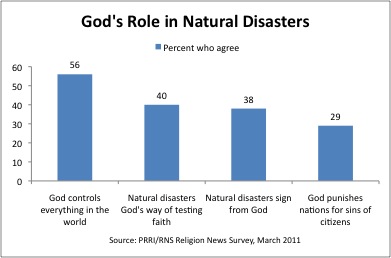When talking about Total Depravity, total inability, and the bondage of the will, it is quite popular among Calvinists to talk about mankind being “dead in sin.”

The Bible frequently makes mention of people being dead in sin, or being spiritually dead, and this terminology is often used to defend the Calvinistic concepts of total inability and the bondage of the will to sin.
Humans are “Dead in Sin”
Here are some quotes from Calvinists showing how they understand and explain the “dead in sin” imagery in Scripture.
A dead man cannot exercise faith in Jesus Christ (Gordon H. Clark, The Biblical Doctrine of Man, 102)
A dead man is utterly incapable of willing anything (Pink, Sovereignty of God, 141).
A dead man cannot cooperate with an offer of healing (John H. Gerstner, A Predestination Primer, 18).
The corpse does not restore life to itself, after life is restored it becomes a living agent (Robert Dabney, The Five Points of Calvinism, 35).
The Calvinist holds to the plain teaching of Scripture and says: “No; he is dead. He cannot even open his mouth. Nor does he have any desire to call a doctor to help him. He is dead” … The Calvinist … would compare man to one who jumps off the top of the Empire State Building and is spattered over the sidewalk. Even if there were anything left of him when he landed, he could not know that he needed help, let alone cry out for it. That man is dead—lifeless—and cannot even desire to be made whole … And that is the picture of the sinner. He is dead in his sins and trespasses (Eph. 2:1, 5). He does not want to be made whole, let alone even know that he should be made whole. He is dead. When Christ called to Lazarus to come out of the grave, Lazarus had no life in him so that he could hear, sit up, and emerge. There was not a flicker of life in him. If he was to be able to hear Jesus calling him and to go to Him, then Jesus would have to make him alive. Jesus did resurrect him and then Lazarus could respond (Palmer, The Five Points of Calvinism, 17-18).
Could the Word of God show more plainly than it does that the depravity is total? And that our inability to desire or procure salvation is also total? The picture is one of death—spiritual death. We are like Lazarus in his tomb; we are bound hand and foot; corruption has taken hold upon us. Just as there was no glimmer of life in the dead body of Lazarus, so there is no “inner receptive spark” in our hearts. But the Lord performs the miracle—both with the physically dead, and the spiritually dead; for “you hath he quickened—made alive—who were dead in trespasses and sins.” Salvation, by its very nature, must be “of the Lord” (WJ Seaton, Five Points of Calvinism).
[A sinner] has all the passive properties belonging to a corpse… (Boice & Ryken, Doctrines of Grace, 74).
The natural man is enslaved to sin; he is a child of Satan, rebellious toward God, blind to truth, corrupt, unable to save himself or to prepare himself for salvation. In short, the unregenerate man is dead in sin, and his will is enslaved to his evil nature (Steele & Thomas, Five Points of Calvinism, 19).

In later posts we will look at some of the biblical texts used to support and defend this Calvinistic interpretation of people being dead in sin. For now, have you encountered this before? Do you think that when the Bible talks about being dead in sin, it refers to the total inability of humankind?
If you want to read more about Calvinism, check out other posts in this blog series: Words of Calvinism and the Word of God.




 Here are some Calvinist quotes about Free will:
Here are some Calvinist quotes about Free will:
 We are looking at 4 reasons the Bible is unique. Here is a brief summary of where we have been so far:
We are looking at 4 reasons the Bible is unique. Here is a brief summary of where we have been so far: When we are violent, we make God the scapegoat for our violence. We learned this practice from the father and mother of humanity, Adam and Eve. After they ate the forbidden fruit in the Garden of Eden, Adam blamed Eve, and Eve blamed the serpent, but both inferred blame upon God. In blaming Eve, Adam said “the woman whom You gave to be with me, she gave me of the tree, and I ate” (Gen 3:12). Adam implies that if God had not given the woman to him, Adam never would have sinned. It was God’s fault. Eve’s attempt to blame God is not so obvious, but in blaming the serpent, it seems that she implies that if the serpent had not been in God’s Garden (for didn’t God create all the animals?), or if God had given to Eve the same instructions He had given to Adam (for didn’t God only give His instructions about the forbidden fruit to Adam?) Eve would not have been deceived.
When we are violent, we make God the scapegoat for our violence. We learned this practice from the father and mother of humanity, Adam and Eve. After they ate the forbidden fruit in the Garden of Eden, Adam blamed Eve, and Eve blamed the serpent, but both inferred blame upon God. In blaming Eve, Adam said “the woman whom You gave to be with me, she gave me of the tree, and I ate” (Gen 3:12). Adam implies that if God had not given the woman to him, Adam never would have sinned. It was God’s fault. Eve’s attempt to blame God is not so obvious, but in blaming the serpent, it seems that she implies that if the serpent had not been in God’s Garden (for didn’t God create all the animals?), or if God had given to Eve the same instructions He had given to Adam (for didn’t God only give His instructions about the forbidden fruit to Adam?) Eve would not have been deceived.

 But here is the thing… just because we don’t want to go off the deep end and idolize nature or damage and destroy human lives for the sake of nature, this does not mean that we can ignore the environmental needs of the world or just consume and destroy the natural resources of this plant in any way we want.
But here is the thing… just because we don’t want to go off the deep end and idolize nature or damage and destroy human lives for the sake of nature, this does not mean that we can ignore the environmental needs of the world or just consume and destroy the natural resources of this plant in any way we want.